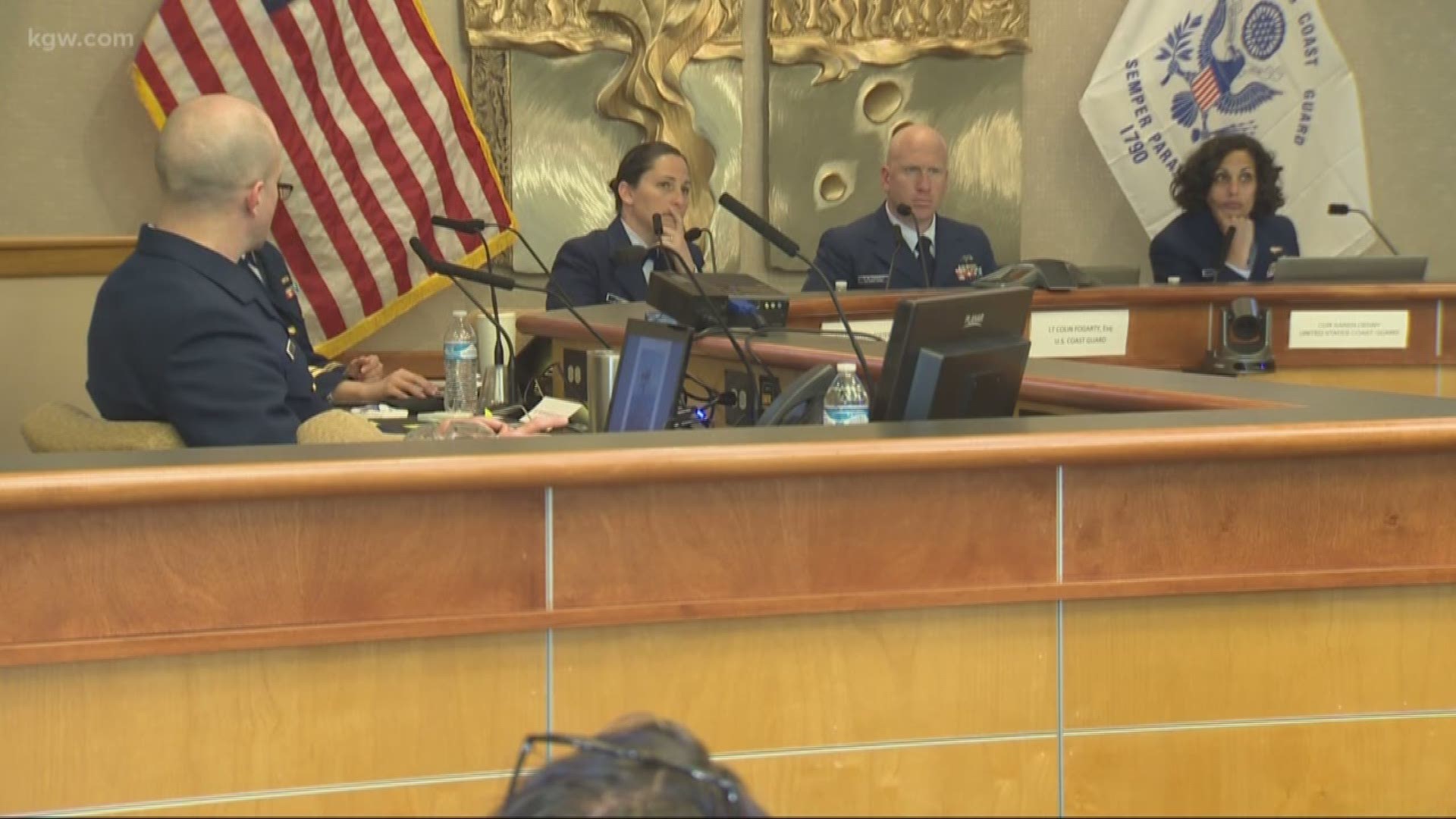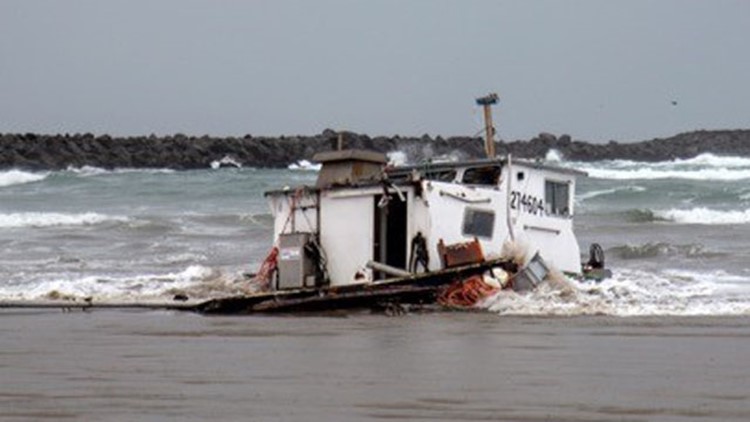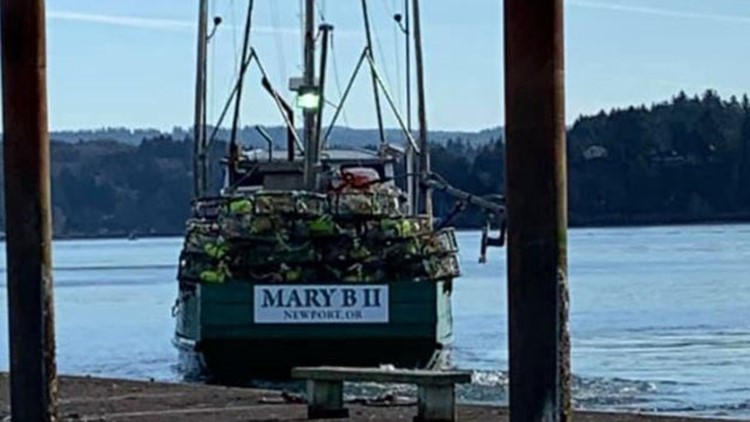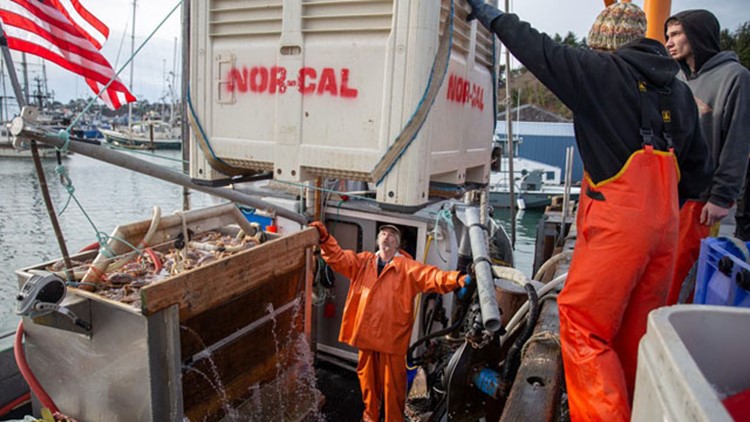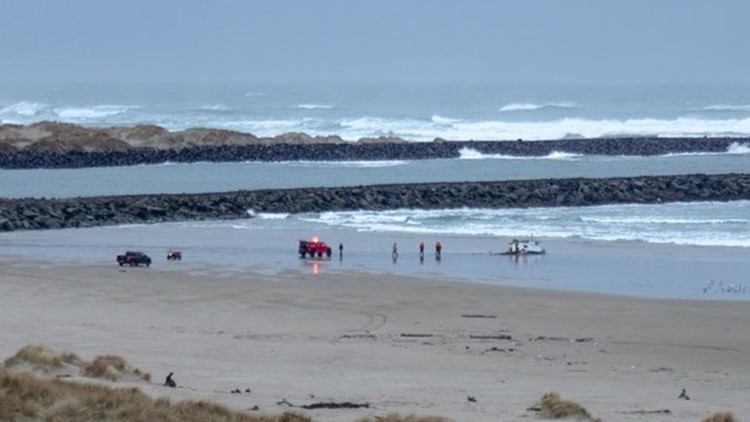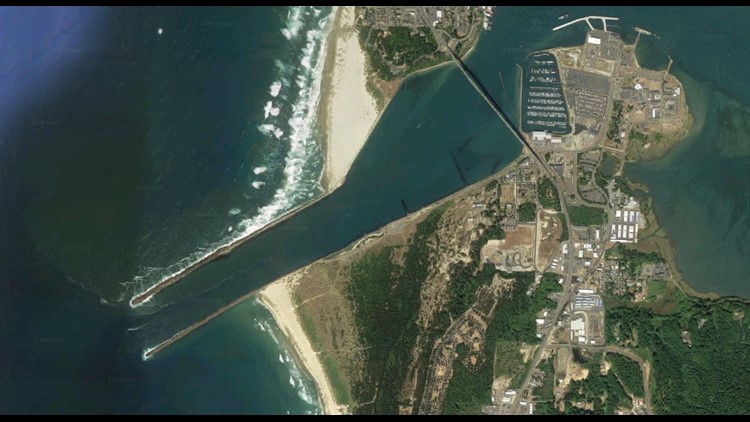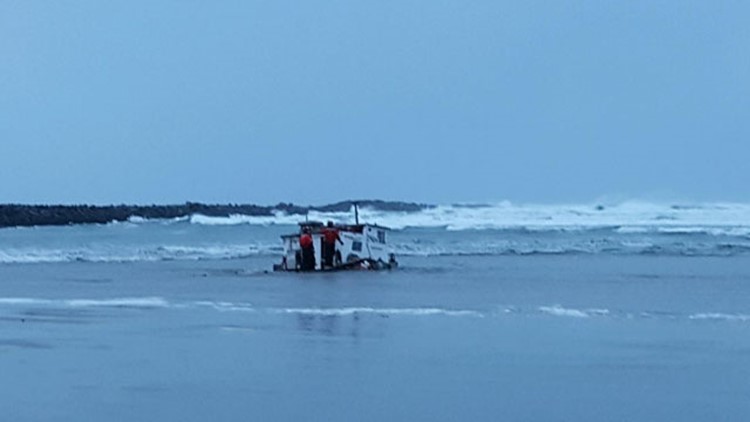NEWPORT, Ore — Monday marked the start of the U.S. Coast Guard’s five-day hearing into what caused a crabbing boat to capsize while coming into the Yaquina Bay bar. All three fishermen aboard the Mary B II were killed in the incident on January 8.
Questioning Monday focused on, among other things, the experience of the ship's captain and his state of mind when the boat capsized.
Toxicology results released Monday revealed the Captain Stephen Biernacki had alcohol and methamphetamine in his system. It is not clear if that played a role in the boat capsizing.
As for the crew members, James Lacy had cannabinoids in his system, and no substances were detected in Joshua Porter.
Oregon State Patrol Trooper Heather Van Meter told investigators that she interacted with Biernacki the day before the boat capsized.
“He did have very tired bloodshot eyes. He was a little distracted when I was talking to him. He had some slurred speech and his movements were pretty slow and sluggish,” Van Meter said during Monday’s hearing.
Biernacki had a blood alcohol concentration of .033, amphetamine reading of 0.17mg, and methamphetamine level of 0.50mg, according to documents provided by the U.S. Coast Guard.
The Coast Guard asked questions about stormy weather conditions and rough waters on the day of the incident. They also concentrated on the stability and condition of the Mary B II.
While Trooper Van Meter told investigators that she observed Biernacki as “not really with it,” she also told them it is not uncommon for fisherman to be tired, groggy, and sleep deprived.
The trooper testified that a community member had approached her the evening prior to the boat capsizing about Bernackie and the Mary B II. That person told her that it was not a good idea to go out in a boat of that size with the inclement weather in the forecast.
There is a great deal of pressure to bring in a profitable haul for the fishing and crabbing community. The fleet will push themselves for days and days, through rough weather, according to Trooper Van Meter.
The previous owner of the Mary B II vessel, Clint Funderberg, also spoke at the hearing Monday. He told the Coast Guard panel that he would not have been out on the Mary B II the day it capsized because of its size up against the rough conditions that day.
Funderberg was also asked about his interactions with Biernacki, who he worked with during the sale of the boat.
"Noticed erratic behavior at times, definitely and I sensed a lack of experience and respect for local West Coast conditions in my talking with him," Funderberg said. "We were going through the boat, I sensed he didn't understand the lock bars and crossings. It concerned me at the time, so I attempted to talk to him and give him some local experience and knowledge."
However, Biernacki was not receptive to learning from Funderberg, according to his testimony.
Fishermen in Newport tell KGW the West Coast waters are dangerous, and the Yaquina Bay bar is difficult to navigate.
“On any day a number of boats could go down like that, but guys have experience crossing it -- they're able to do it safely,” Kevin Beasley, a fisherman aboard The Emerald Sea, said.
Fishing and crabbing off Oregon’s coast comes with risk and experience is key to survival. It hits the fishing community hard when any life is lost in the water, according to Beasley.
“It sinks deep. It could happen to anyone,” Beasley said. “Anyone can take a boat out but getting back in is a different story.”
Capitan of The Emerald Sea, Mark Schones knows the pressure and responsibility skippers face to keep their crew safe, but also make sure the crew can bring home a paycheck.
“It's just a gamble. Every time you go out fishing,” he said. “You’re trying to keep everybody’s bills payed.”
The U.S. Coast Guard hearing at Newport City Hall will continue through Friday. The Coast Guard says it will use what they find from this hearing to help prevent the re-occurrence of such an incident and future casualty.

